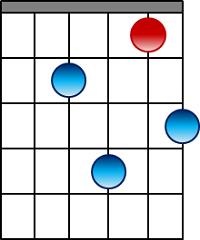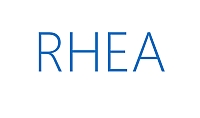TeamMeUP: Assessing the potential of computational matchmaking for the game development sectorPrincipal InvestigatorTeamMeUp, funded by The Dutch Research Council, explores the potential of computational solution for team formation in the video game industry. Video game development is a creative sector with significant economic impact, relying on the efficient collaboration of creative professionals from diverse backgrounds to develop the next successful game. However, assembling an efficient team of these professionals is a challenge, leading to considerable economic and social consequences for the industry. Using optimization algorithms and insights from social sciences, TeamMeUp aims to help address the issue of inefficient talent coordination in the game industry.
Timeline: 2025 Partners: Utrecht University Keywords: team formation optimization, computational matchmaking, talent coordination, game development industry |
Teacher Support for Integrating Generative AI practices in Programming CoursesCo-principal InvestigatorBuilding on the 2023-2024 USO project “Generative Artificial Intelligence in Programming Education”, this project focuses on integrating generative AI into programming education, with an emphasis on teacher training. Through workshops and empirical validation, it aims to align AI practices with course objectives and support evidence-based teaching in higher education. The end result will be a methodology that helps teachers align their use of AI in programming education (including code explanation, exemplar code generation, review of student code, exercise quick start, code refactoring, and analogies generation) with the intended learning outcomes, and the didactical approaches they wish to follow.
Timeline: 2024 - present Partners: Utrecht University Keywords: programming education, teacher training, evidence-based teaching, generative Artificial Intelligence |
GameDevUp: Upgrade Team Formation in Game DevelopmentSupervisorIn the game development sector, the formation of effective teams has long been a challenge, often hindering creative potential and leading to inefficiencies. With the support of the Marie Skłodowska-Curie Actions, the GameDevUp project tackles this issue by exploring collaboration dynamics and developing an algorithmic matchmaking system to reshape how game developers connect and innovate. The project aims to provide a methodology that helps developers and incubators foster diverse, productive teams across geographic, social, and economic boundaries, while contributing to the broader literature on what drives successful collaboration in creative industries. Its ultimate goal is to deliver a scalable, algorithm-mediated matchmaking model that can enhance collaboration during game jams and incubation programs, with potential to evolve into a startup.
Timeline: 2024 - present Partners: Utrecht University, Institute of Digital Games-University of Malta Keywords: collaborative and social computing, computer-supported cooperative work, video games industry, creative industries |
Generative Artificial Intelligence in Programming EducationCo-principal InvestigatorThe goal of the "Generative AI in Programming Education" project is to explore the implications of generative AI tools, with emphasis on Copilot and ChatGPT, on programming education and to develop a web toolkit with resources and best practices to help teachers understand and successfully embed these tools into their teaching and assessment practices. The project is supported by the Utrecht University's Education Incentive Fund (Utrechts Stimuleringsfonds Onderwijs USO).
Timeline: 2023 - 2024 Partners: Utrecht University Keywords: AI-enhanced software development, generative artificial intelligence, education transformation, future-proof programming |
Crowd-AI Teams for Engineering Product DesignCo-principal InvestigatorThe project, funded by the MIT-Netherlands Lockheed Martin Seed Fund, developed a set of joint human-AI methods for product design which combined deep generative machine learning methods with the objective functions and design requirements from human designers. It combined the Performance Augmented Diverse Generative Adversarial Networks (PaDGAN) framework developed by Prof. Ahmed’s DeCoDe Lab, with the innovation generation and crowd team methods developed by Dr. Lykourentzou’s Collaborative Technologies Lab. The primary use case of the project was generating innovative bicycle designs, with further applications on high-performance designs for aircraft and airfoil products.
Timeline: 2023 - 2024 Partners: MIT DeCode lab, Utrecht University Keywords: human-AI collaboration, deep generative models, design optimization, collaborative technologies, machine learning in design, innovation generation |
CROSSCULT
|
aCCoRdO
|
Experimedia BLUE
|
RHEA
|








